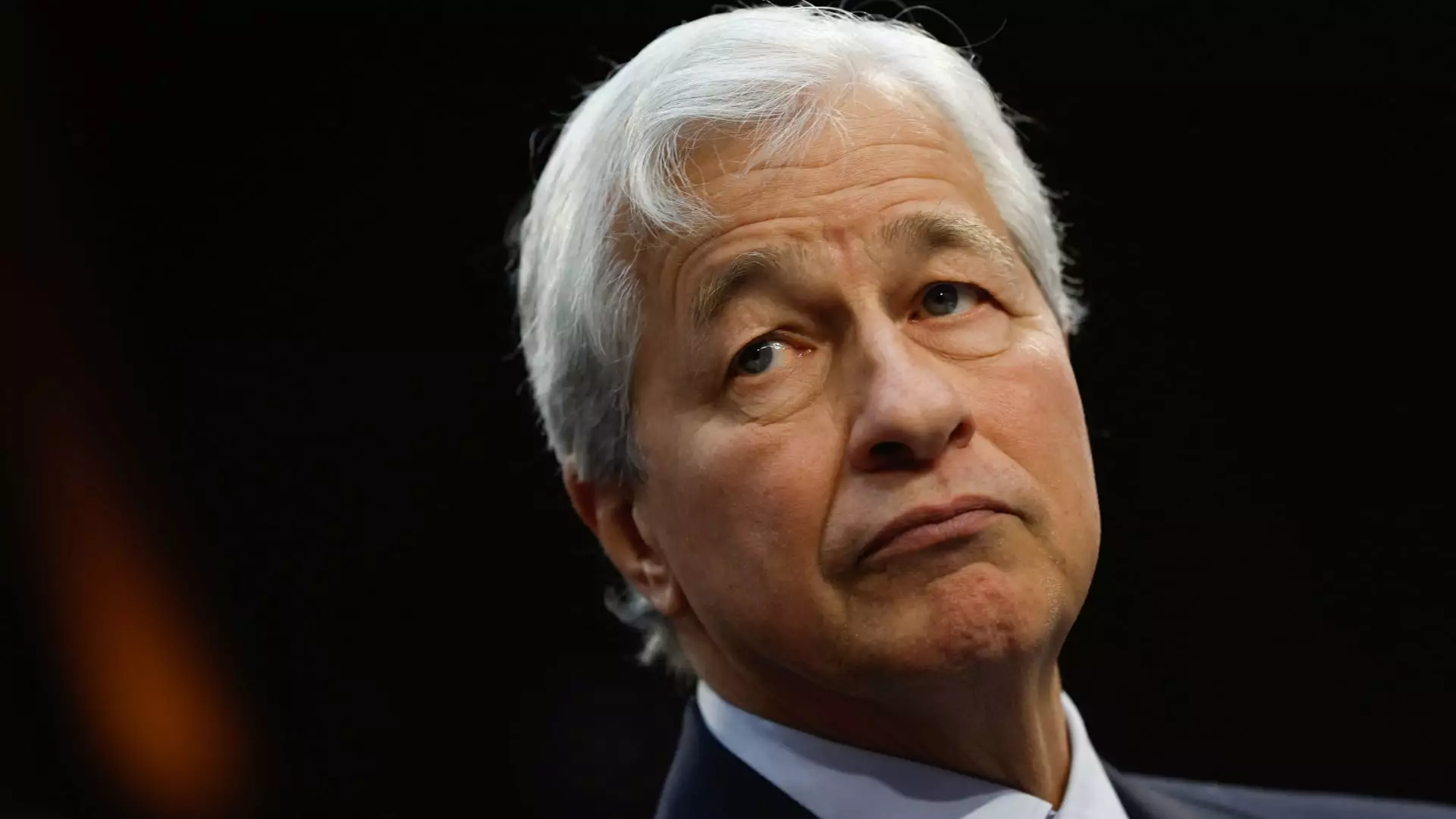In a climate of escalating geopolitical tensions, especially in the Middle East and Eastern Europe, JPMorgan Chase’s CEO Jamie Dimon has expressed grave concerns about the state of global stability. The persistent conflicts, particularly the war in Ukraine and the ongoing hostilities between Israel and Hamas, pose significant threats to international peace and economic security. Dimon’s remarks during the bank’s third-quarter earnings release underscore an urgency to recognize the risks that these geopolitical issues create for the global economic landscape.
Dimon has characterized the current atmosphere as “treacherous,” asserting that the ramifications of these conflicts extend far beyond immediate humanitarian crises. In an era where traditional global alliances established after World War II are strained, Dimon’s warnings reflect a fundamental shift in how these conflicts could remake the political and economic order. With U.S.-China relations becoming increasingly fraught and threats of nuclear maneuvers from nations like Iran and North Korea, the implications for global security could be profound.
Human Suffering and Economic Consequences
The human toll of these escalating conflicts cannot be overstated. As violence overwhelms affected regions, such as the recent intensification of hostilities since Hamas’ attack on October 7, 2023, the death toll has skyrocketed. Moreover, as Dimon pointed out, the potential for these conflicts to broaden—especially with direct military confrontations involving Iran, Russia, and potentially the U.S.—could produce a cascade of economic disruptions. Markets respond anxiously to geopolitical instability, and the shockwaves of such violence could manifest in global inflation, supply chain disruptions, and investor uncertainty.
The recent Israeli airstrikes in Lebanon, resulting in numerous casualties, further exemplify the volatility of the situation. The threat of retaliation and broader military engagement not only deepens human suffering but also places firms and investors on high alert, anticipating how these events will influence economic stability both regionally and internationally.
Despite some optimism around the American economy, with indicators suggesting potential for a soft landing due to Federal Reserve measures, Dimon remains cautious. He highlights enduring issues such as hefty fiscal deficits, underinvested infrastructure, and the ongoing need for a recalibrated approach to international trade. Such challenges, compounded by rising military expenditures—evident from Russia’s recent budget increases—hint at a cycle where economic resilience may be increasingly tested against geopolitical instability.
The intersection of military spending and domestic resources creates a precarious balance. Nations expanding their defense budgets inevitably divert funds from vital public services and infrastructure improvements, potentially stifling economic growth and social stability in the long run.
As Dimon emphasized, the urgency for decisive leadership among American and Western officials has never been clearer. The challenges we face in the current geopolitical landscape require not just awareness but a coordinated response that targets both immediate threats and the underlying causes of instability. Fostering dialogue, reinforcing alliances, and engaging diplomatically with adversaries may hold the key to averting a broader crisis.
Failure to act comprehensively could lead to a downward spiral, where increased tensions result in economic decline and human suffering. In light of Dimon’s forewarnings, stakeholders across sectors should remain vigilant, optimistic engagement is vital to navigate through these uncertain waters. The stakes extend far beyond markets—they touch upon the essential fabric of society and the future trajectories of nations around the world.

